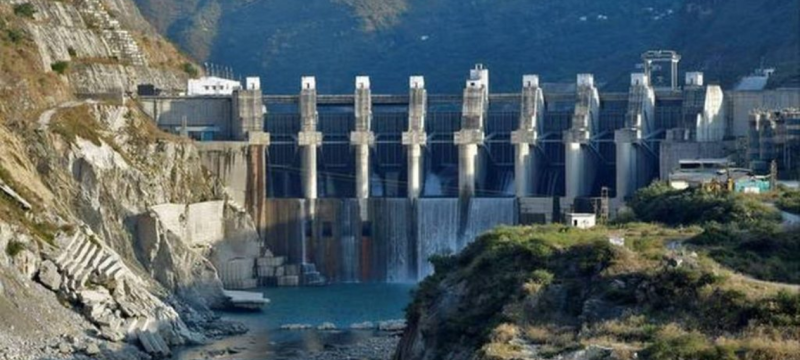India has embarked on its first concrete move that challenges the Indus Waters Treaty (IWT) of 1960 by beginning reservoir flushing at two hydroelectric projects in the Indian Illegally Occupied Jammu and Kashmir (IIOJK). According to Reuters sources, the sediment-clearing operations at the Salal and Baglihar dams were launched without prior notification to Pakistan, raising concerns about future water flows across the border.
The operation, conducted by NHPC Ltd and local authorities, ran from May 1 to May 3. While the process is not expected to immediately disrupt Pakistan’s water supply, experts caution that repeated activities of this nature—especially if extended to other dams—could pose long-term risks. The flushing procedure, which forces sediment-laden water downstream, can cause sudden inundation followed by reduced flows as reservoirs refill.
ALso Read: Water Surge at Mangla Dam: Climbs 86 Feet Above Critical Level
India’s move comes shortly after its unilateral suspension of the IWT, following the Pahalgam attack in which 26 people were killed. Without presenting evidence, India accused Pakistan of involvement, escalating bilateral tensions. Pakistan has denied any role in the incident and warned that any attempt to divert water flows would be treated as an act of war, threatening international legal action.
Analysts highlight that while India’s current projects operate under the run-of-river system, which restricts large-scale water storage, bypassing treaty obligations raises fears of future manipulation. Pakistan, heavily reliant on these waters for agriculture, remains vigilant as India signals intentions to pursue water infrastructure projects without prior consultation.





